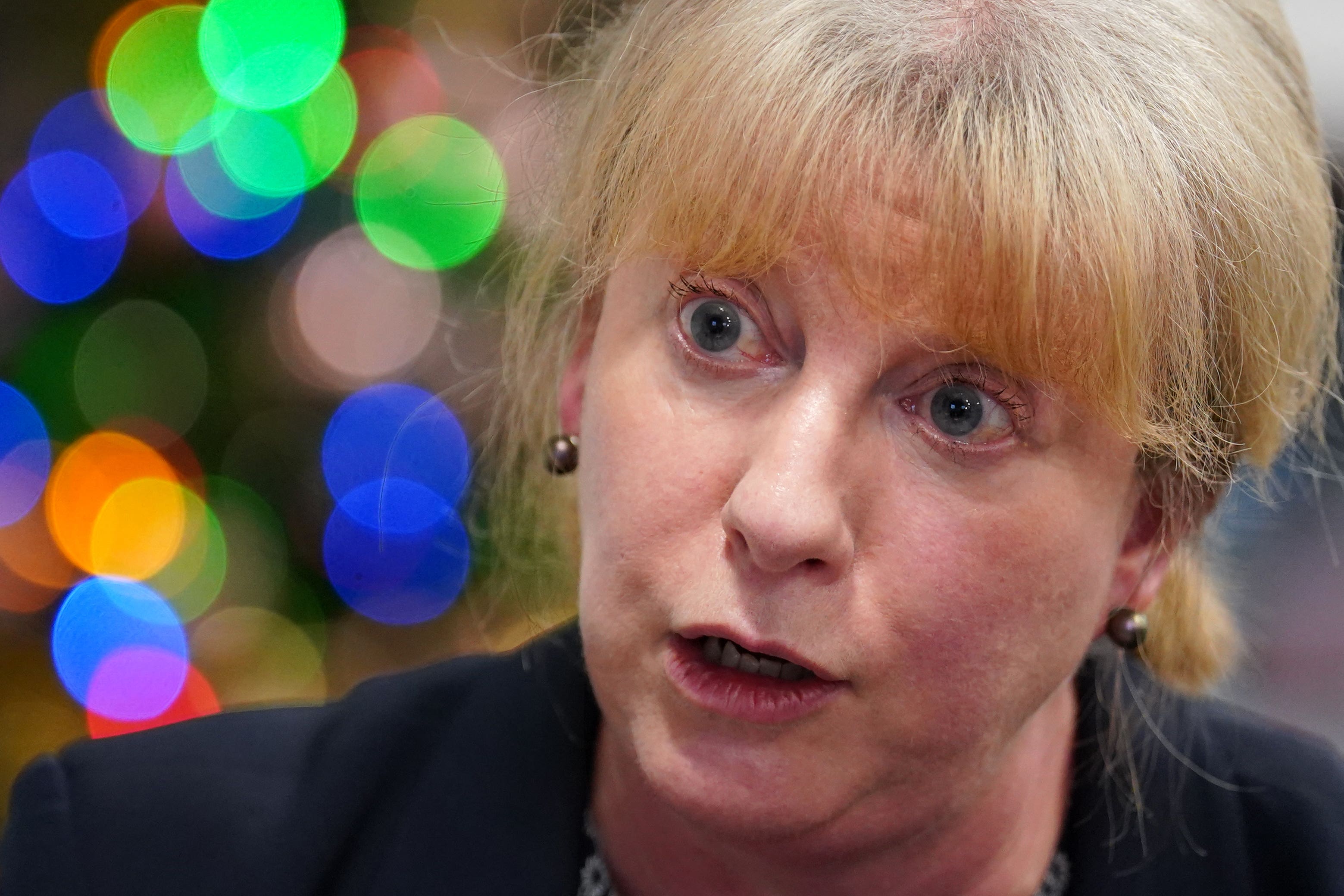UK Government ‘hell-bent on new age of austerity’, MSPs warned, as Budget passed
The Scottish Government’s tax and spending plans for 2024-25 have been approved, despite the Tories, Labour and Liberal Democrats voting against them.

The Tory Government at Westminster is “hell-bent on returning to a new age of austerity”, Scotland’s Finance Secretary has warned.
Shona Robison, who is also the Scottish Deputy First Minister, hit out at the UK Government as the Scottish Budget for 2024-25 was passed at Holyrood.
However, with opposition MSPs branding the Scottish Government’s Budget “chaotic and incompetent”, it was only SNP and Green MSPs who voted through the plans – which will see tax rises for middle and higher earners, while spending in areas such as affordable housing will be cut.
Ms Robison blamed the UK Government for cuts, telling MSPs she had produced a “challenging Budget, requiring difficult choices”.
She insisted her priority had been “to protect our frontline services” as she told MSPs that Westminster’s “failure to invest in public services and infrastructure” had created a “fiscal challenge” for Holyrood ministers.
Ms Robison added: “It is unclear to me how the UK Government intends to provide the infrastructure or investment in capital that creates long-term sustainable economic growth when it is hell-bent on returning to a new age of austerity.”
While the Budget Bill was passed by 68 votes to 55 with one abstention, the Finance Secretary warned of the possible “danger” from Chancellor Jeremy Hunt’s Spring Budget next week.
Ms Robison said it is “absurd” that Holyrood is finalising its tax and spending programme for the coming year “when in a week, large parts of it may be impacted by the choices of the UK Chancellor”.
She urged Mr Hunt to increase the Scottish Government’s capital spending budget on March 6.
The minister also called on him to “prioritise investment in public spending and infrastructure over further tax cuts”.
However she came under fire from both the Conservatives and Labour at Holyrood for changes in the Scottish Budget which will see income tax rises for middle and higher earners.
A new income tax band is being created which will see those on a salary between £75,000 and £125,140 paying 45%, while a 1% increase to the highest rate of tax – for those earning more than £125,140 – will take it to 48p in the pound.
Ms Robison insisted the “progressive tax system” will provide “over half a billion pounds extra for NHS Scotland”.
This deeply disappointing and disjointed Budget risks bringing to a screeching halt - and if anything, throwing into reverse - action to tackle poverty
But Labour’s finance spokesman Michael Marra said the “chaotic and incompetent Budget” from the Scottish Government “hikes taxes for nurses struggling with the mortgage”.
He said the plans are “based on the economically and fiscally illiterate assumption that income tax can be used to plug the hole left by the SNP’s failure to grow the economy”.
The Labour MSP added: “It is a Budget where Scots are going to pay much more and get much less.”
Scottish Conservative finance spokesperson Liz Smith said the Budget “does nothing” to boost jobs, investment or economic growth and instead offers people “higher taxes and reduced public services”.
She added: “Virtually every business group has condemned Shona Robison’s plans, which will hammer Scottish workers, the majority of whom pay more tax than they would in the rest of the UK.”
Ms Smith added that if economic growth in Scotland had matched that of the UK since 2017, ministers “would have £6 billion more to spend in this Budget”.
Scottish Liberal Democrat leader Alex Cole-Hamilton meanwhile said ministers had opted to increase income taxes because they are “completely out of ideas about how to spark growth, drive innovation, or enlarge the tax base sustainably”.
Business leaders at the Scottish Retail Consortium (SRC) branded it a “guddle of a Budget”, saying while there are “some positives”, there are also “significant flaws”.
SRC director David Lonsdale added it “remains an inadequate response to the task at hand of delivering a coherent plan to lift economic growth and private sector investment”.
He said: “With Scotland’s economy in the doldrums, regrettably, this Budget seems set to make things more challenging.”
Campaigners at Oxfam Scotland said efforts to tackle poverty could be put into reverse by the Budget plans.
Jamie Livingstone, the charity’s head, said: “This deeply disappointing and disjointed Budget risks bringing to a screeching halt – and if anything, throwing into reverse – action to tackle poverty.
“The potentially poverty-busting gains made through fair income tax increases for the richer are being wasted on a simultaneous backhander to the better off through the intended council tax freeze.
“It’s an alarmingly muddled misstep that’s fundamentally flawed.”
Meanwhile, with local government leaders insisting the Budget fails to provide them with enough cash to cover a freeze in council tax, the local authority organisation Cosla said: “Whichever way you cut it, this is not a good Budget for Scottish Local Government or communities that we represent.”
Cosla resources spokesperson Katie Hagmann added: “If we are serious about tackling inequalities in Scotland, investing in prevention, and promoting inclusive growth we must be properly resourced.
“Local government holds the key to deliver the essential front-line services that enables this to happen.”
Bookmark popover
Removed from bookmarks